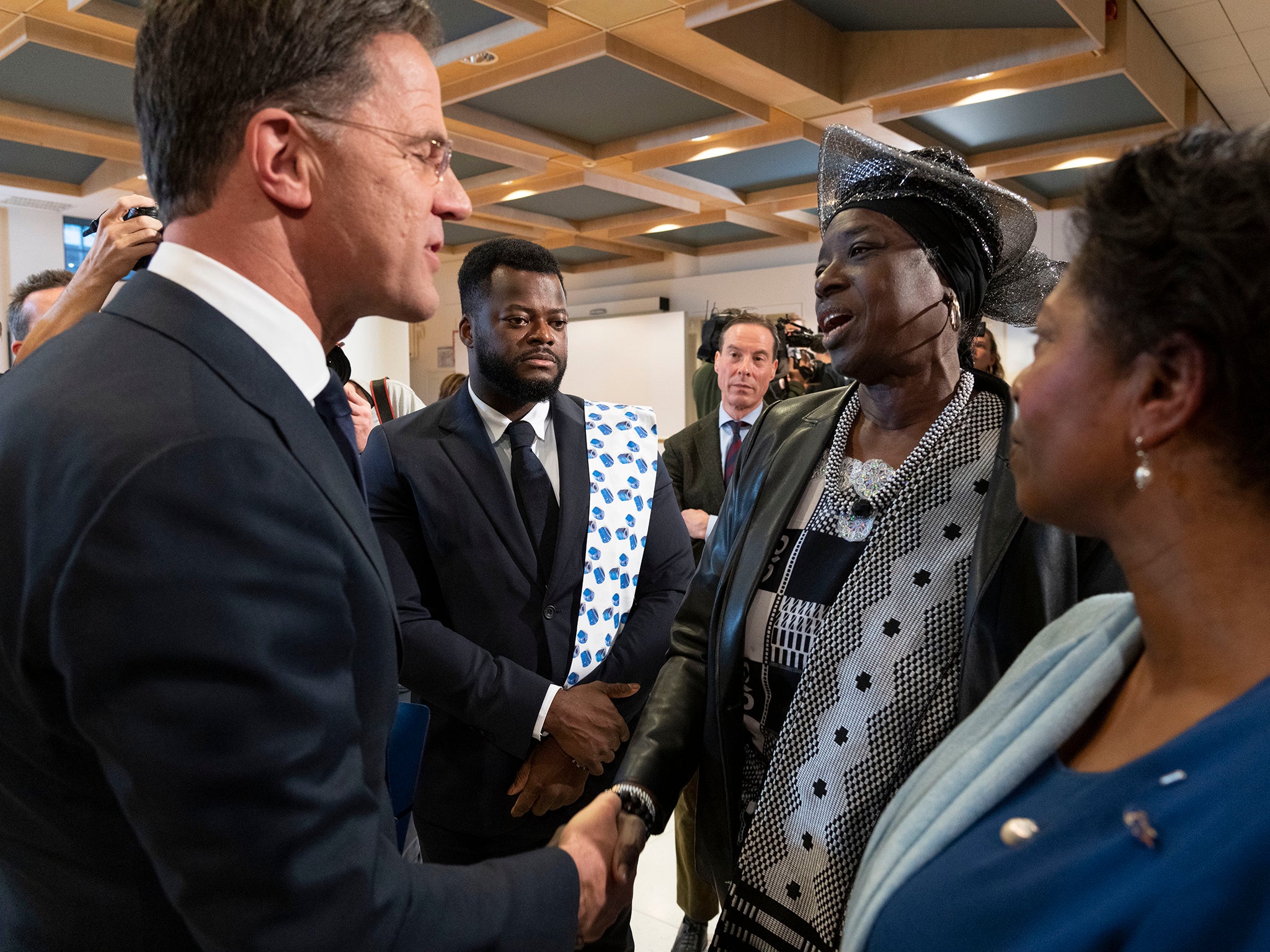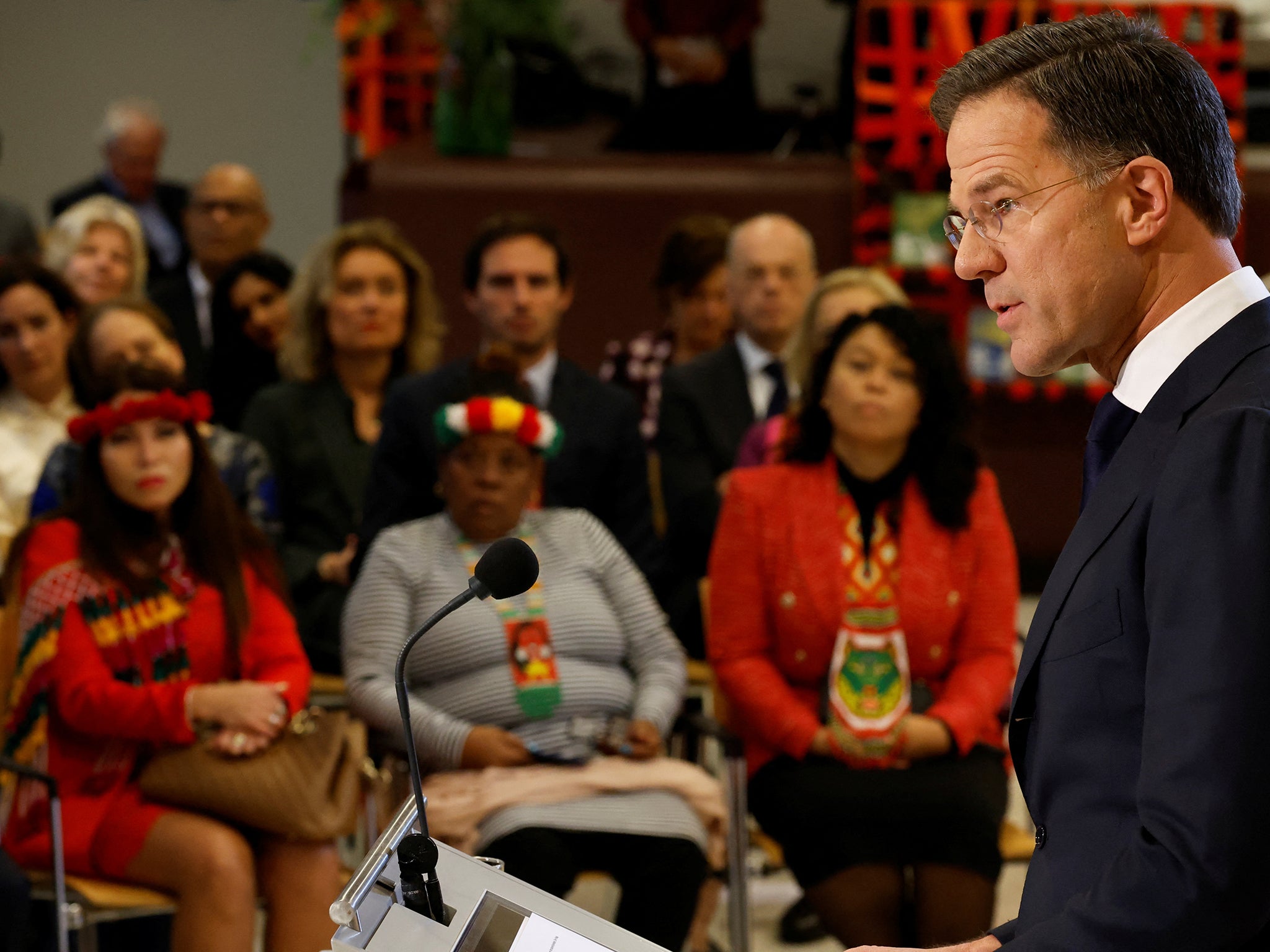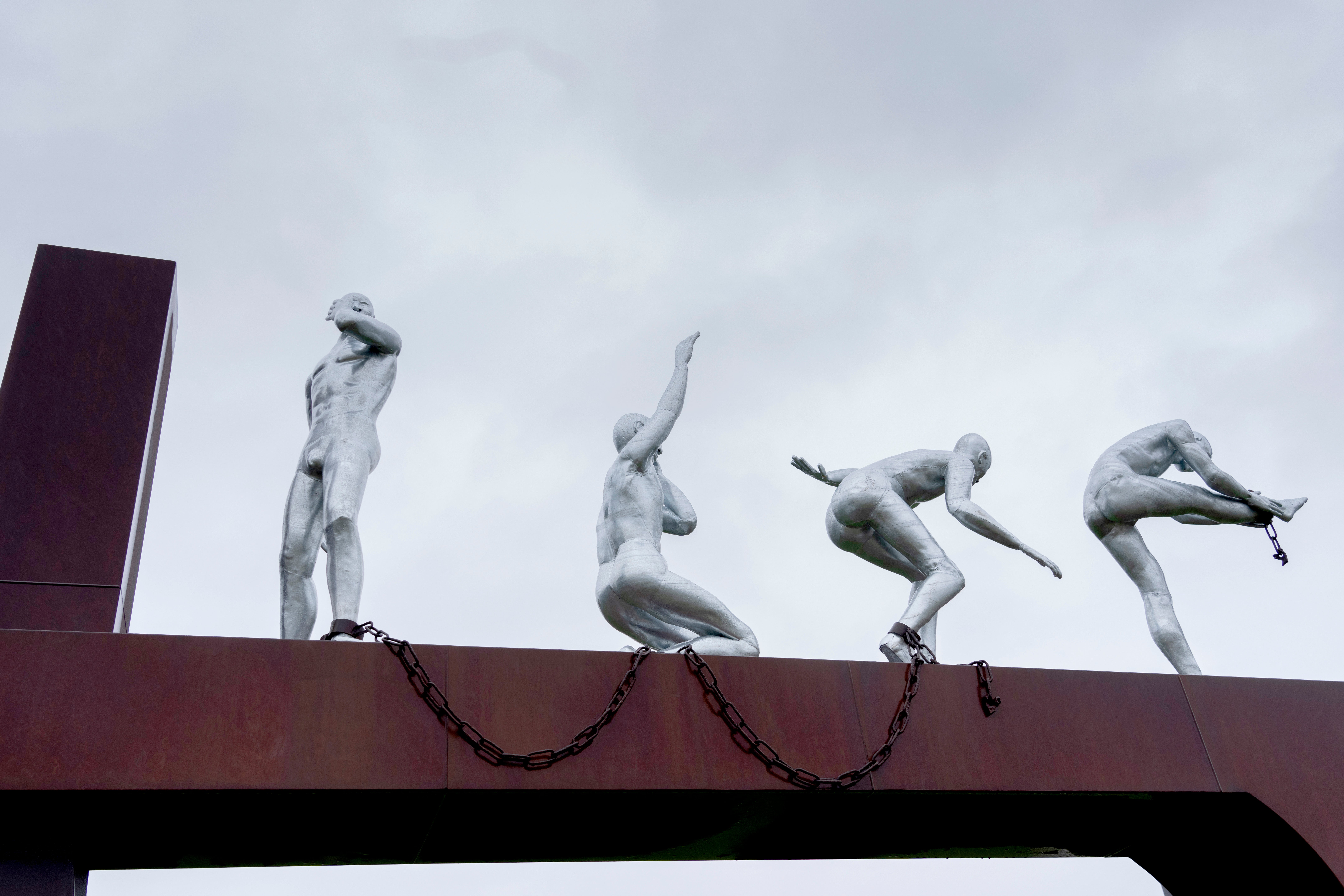Dutch prime minister apologies for role Netherlands played in slave trade
However, critics label the speech as ‘neo-colonial belch’, as lack of reparations raises complaints

Your support helps us to tell the story
From reproductive rights to climate change to Big Tech, The Independent is on the ground when the story is developing. Whether it's investigating the financials of Elon Musk's pro-Trump PAC or producing our latest documentary, 'The A Word', which shines a light on the American women fighting for reproductive rights, we know how important it is to parse out the facts from the messaging.
At such a critical moment in US history, we need reporters on the ground. Your donation allows us to keep sending journalists to speak to both sides of the story.
The Independent is trusted by Americans across the entire political spectrum. And unlike many other quality news outlets, we choose not to lock Americans out of our reporting and analysis with paywalls. We believe quality journalism should be available to everyone, paid for by those who can afford it.
Your support makes all the difference.Dutch prime minister Mark Rutte apologised on behalf of the Netherlands for its role in the slave trade, and for consequences that continue into the present day.
“For centuries the Dutch state and its representatives have enabled and stimulated slavery and have profited from it,” Mr Rutte said.
“It is true that nobody alive today bears any personal guilt for slavery ... [however] the Dutch state bears responsibility for the immense suffering that has been done to those that were enslaved and their descendants... Today, on behalf of the Dutch government, I apologise for the past actions of the Dutch state.”
The Netherlands has lately been confronting its colonial past, including efforts to return looted art, and has been acting on the advice of an advisory panel set up in the wake of the 2020 killing of George Floyd in the United States. The panel recommended in 2021 that an apology and reparations would be appropriate. It said that Dutch participation in slavery had amounted to crimes against humanity and that what it called institutional racism in the Netherlands “cannot be seen separately from centuries of slavery and colonialism and the ideas that have arisen in this context”.
However, there was criticism about the Dutch government’s refusal to grant reparations, as well as the lack of consultation with the people whose ancestors were victims of slavery.
“It takes two to tango – apologies have to be received,” said Roy Kaikusi Groenberg of the Honour and Recovery Foundation, a Dutch Afro-Surinamese organisation. “The way the government is handling this, it’s coming across as a neo-colonial belch,” he said.
Following Mr Rutte’s speech, Dew Sharman, deputy chair of the Surinamese parliament, said: “Certain things have been left out, such as reparations.

“This will actually cause more tension in our society and that is due to the political immaturity of the Netherlands. They should have known this in advance and should have discussed this with the Surinamese government,” Dutch paper De Telegraaf quoted him as saying.
Mr Rutte has ruled out reparations, pointing instead to a €200m state fund for raising awareness of the country’s colonial past.
The prospect of an apology by Mr Rutte in The Hague was resisted by groups who say it should have come from King Willem-Alexander in Suriname, on 1 July 2023 – the 160th anniversary of Dutch abolition.
Mr Rutte acknowledged that the run-up to the announcement had been handled clumsily and said the Dutch government was sending representatives to Suriname, as well as Caribbean islands that remain part of the Kingdom of the Netherlands with varying degrees of autonomy: Curacao, Sint Maarten, Aruba, Bonaire, Saba and Sint Eustatius.

Reckoning with the consequences of slavery will be “a process in which you talk about recovery, in the sense of together acknowledging the past and the consequences in the present, but not, let’s say, salaries that weren’t paid,” Mr Rutte said.
Many Dutch people take pride in the country’s naval history and prowess as a trading nation. However, children are taught little of the role in the slave trade played by the state-backed Dutch West India Company (DWIC) and the Dutch East India Company, key sources of national wealth.
Racism remains a significant problem in Dutch society. Citizens of foreign ancestry report everyday discrimination and recent studies have shown they face significant disadvantages in the workplace and in the housing market.
Additional reporting by Associated Press and Reuters



Join our commenting forum
Join thought-provoking conversations, follow other Independent readers and see their replies
Comments